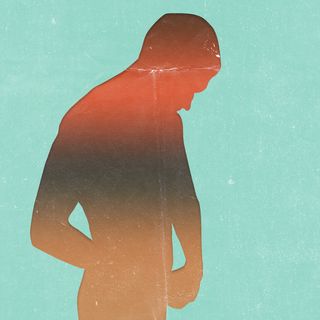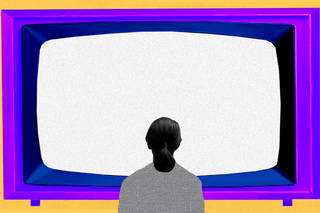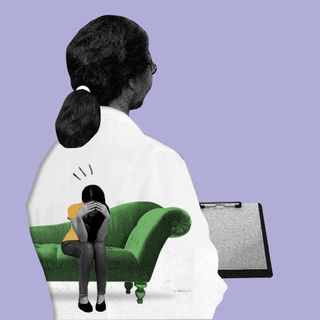
What Happens to Our Bodies When We Eat All Our Meals in Front of the TV
When we’re distracted by the TV, we miss the bodily signals that tell us how much to eat, and how much to chew.

“I like to know what it is I’m going [to] watch before I’ve even sat down to eat… It’s rare that I’ll ever have dinner when I’m not watching a program and it always feels really weird. It’s not right,” an individual named Gbenga told Vice News.
I really, really relate to Gbenga. My partner would be halfway into his meal, and I’d still be looking for something to watch. Naturally, I often end up eating my food cold; after doing the mental labor of choosing the right show to pair with dinner, which brave soul has the energy to get up and reheat the food!
It doesn’t look like Gbenga and I are the only ones to feel this way — especially going by the sheer number of likes and retweets on American rapper T-Pain’s (now deleted) tweet from 2018. It read: “I can’t bring myself to trust a person that can eat a full meal without watching TV. I can’t even start eatin until I find the right show [sic].” Evidently, celebrities aren’t safe from the lure of the screens either.
But why have so many of us collectively developed this habit?
People — like me — strongly insist on watching TV to help relish food better. However, as Suzanne Higgs said, “I don’t think there’s any evidence to suggest that the food tastes better overall.” She is a professor in the psychobiology of appetite at the University of Birmingham in the U.K. “What some people have found is that when we eat, the food starts off being very tasty, but you normally get a gradual decline in people’s ratings of how pleasant the food is which is thought to be one of the mechanisms that contribute to us stopping eating,” she notes.
“What TV might be doing is offsetting that decline in the pleasantness of food as we eat, so in a sense, the pleasantness might be maintained for longer,” she explains. What essentially happens is that the TV distracts us from our food — pushing boredom from setting in, and prolonging our perceived enjoyment of our meal, in the process.
So, perhaps, when I think watching TV helps me enjoy my food more, what I mean is that it makes my food remain likable for longer.
Related on The Swaddle:
Most People Will Regain Weight After Losing It; Here’s Why
There’s also a cultural factor that reinforces our preference for pairing TV with food. Charles Spence, a professor of experimental psychology at Oxford University and the author of Gastrophysics: The New Science of Eating, argued societal changes redirected our desire for company. “With the decline of the family meal and more people living alone because of divorce, old age, and changes in society, we look for something else to do if we’re dining by ourselves like turning to the TV or the laptop,” said Spence.
But just because we’ve picked on a habit, doesn’t mean it’s good for us. In fact, it’s quite the opposite. “It’s fine to sometimes have a snack in front of the TV, but when… eating and watching TV become cognitively linked, then it becomes an unhealthy pattern,” Susan Albers, a psychologist specializing in eating issues, weight loss, body image concerns, and mindfulness, explained.
“We tend to eat more mindlessly in front of the TV… [which] also prolongs the time period that we’re eating. If your show is an hour-long, you might continue to eat throughout that time period,” she added. Basically, any form of viewing distracts us from our food. When our attention is divided between what we’re watching and what we’re eating, we miss cues like feeling full, noticing how many samosas we’ve finished, or how empty the packet of chips has become.
Past research also suggests that when we’re distracted, we tend to eat more. “My wife and I notice a big difference when we eat at the table versus in front of the TV. At the table we eat slower, enjoy our food more… In front of the TV… barely aware of what we’re eating, we tend to eat faster, and often more. After the meal we might move right to dessert or even another snack, just out of habit,” Jason Lillis, an associate professor of psychiatry, wrote in Psychology Today.
Related on The Swaddle:
A Plus‑Size Model Shares She’s Anorexic, Proves Appearance Isn’t Sole Marker of Eating Disorders
Besides being unable to keep track of the quantity of food we’re eating, experts point out watching TV while eating also makes us forget to chew our food properly. And not chewing well can lead to a host of digestive issues — like heartburn, acid reflux, nausea, headaches, or even malnutrition — since the body may not have enough enzymes to break down food that’s not already been broken down once by chewing. Further, eating mindlessly can also disrupt communication between the gut and the brain, putting people at greater risk of gastrointestinal issues.
However, it is pertinent to note that once in a while, enjoying meals with our eyes peeled on all the latest offerings by OTT platforms isn’t terrible. “If you want to eat dinner while watching F.R.I.E.N.D.S. as a way to de-stress and you know that’s going to make you feel better and will accomplish that goal, then great — go for it!” Elise Museles, eating psychology and nutrition expert, advised, adding that, “what can become a slippery slope though is when it starts becoming a habit and you don’t even know why you’re doing it.”
Research suggests that more than 40% of the time, we’re acting upon habits; simply repeating specific actions in similar contexts — almost automatically, without sparing it much thought.
So, are we ready to ditch the TV as our regular eating companion yet? Perhaps, if we find ways to be less alone. However, that might not be a one-size-fits-all approach. As yet another individual told Vice News, she cherishes sitting down and having her means with her partner — while watching TV. I relate to that. And, arguably, neither I nor she is “alone” while dining with our respective partners. Yet, we do it since it feels like we have our friends — be it Joan and Sherlock, or Shanti and Om — over, and we’re hearing them tell us about their recent adventures.
I may be speaking only for myself, but I’m not sure I’m quite ready to give this routine up yet. In fact, I’ve already decided what I’m watching for dinner — it’s Masterchef.
Devrupa Rakshit is an Associate Editor at The Swaddle. She is a lawyer by education, a poet by accident, a painter by shaukh, and autistic by birth. You can find her on Instagram @devruparakshit.
Related


What Happens When Therapists Bring Their Own Gender Bias Into Client Care
